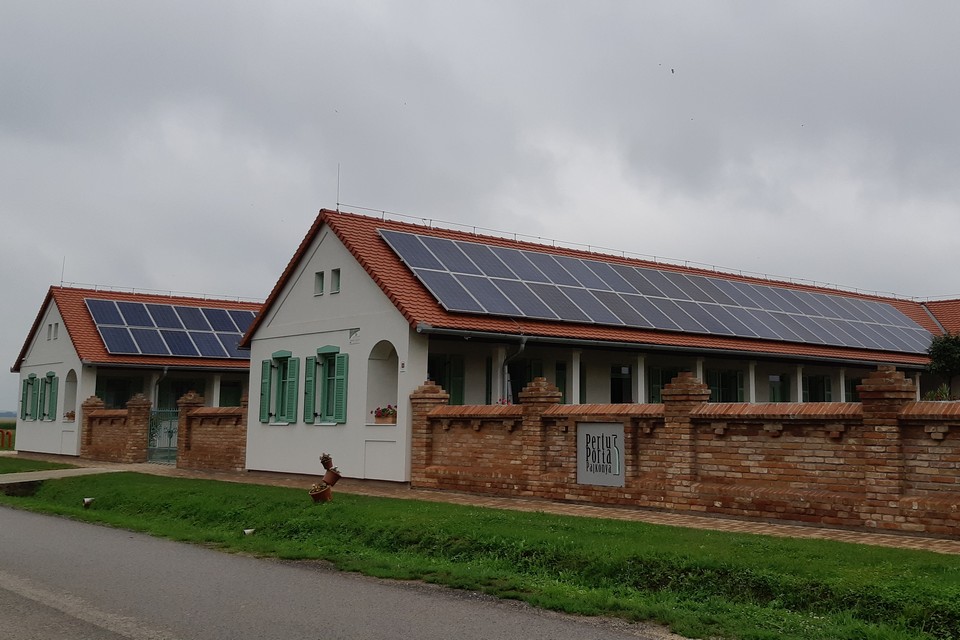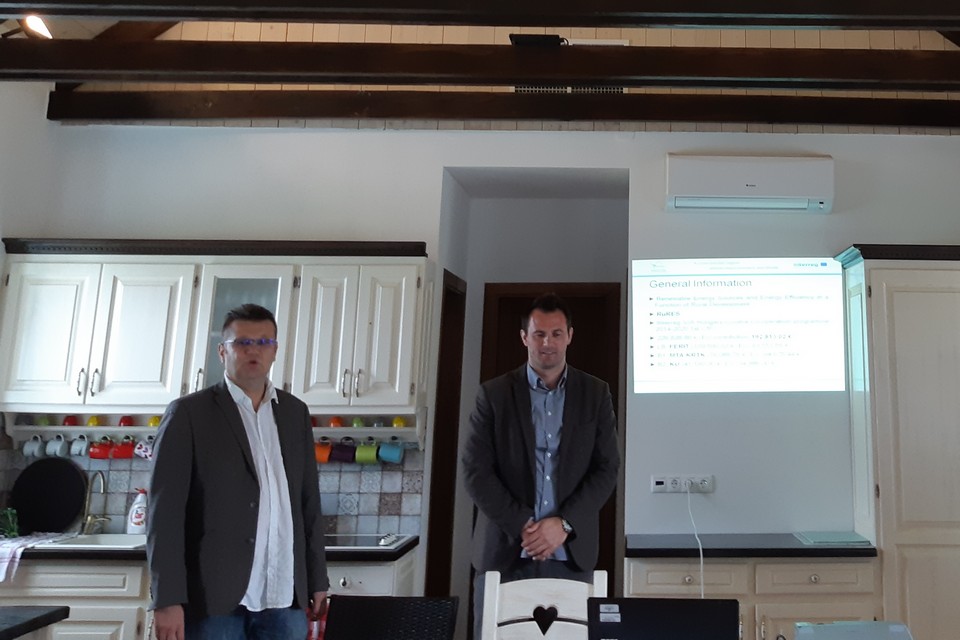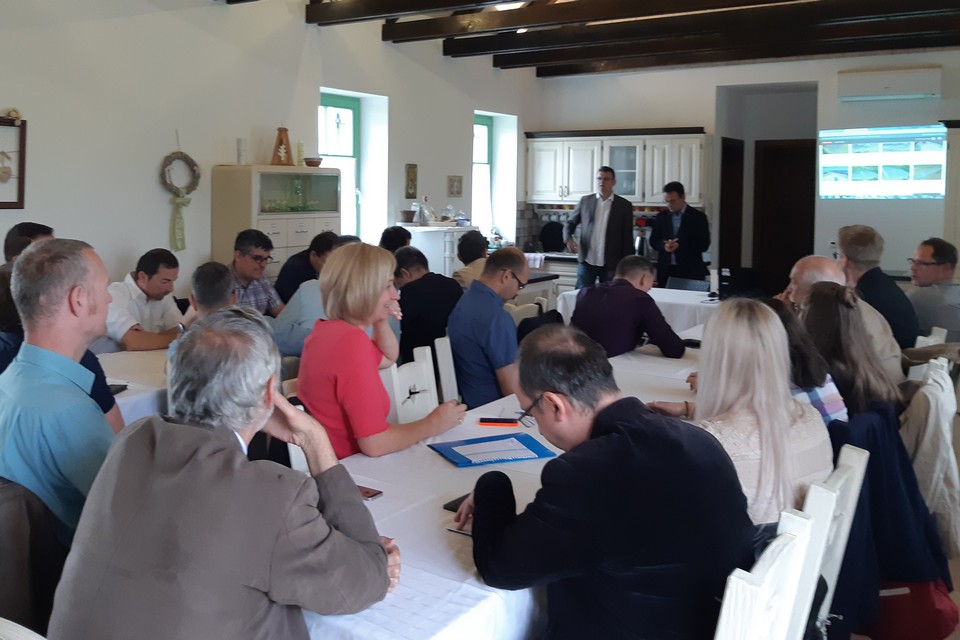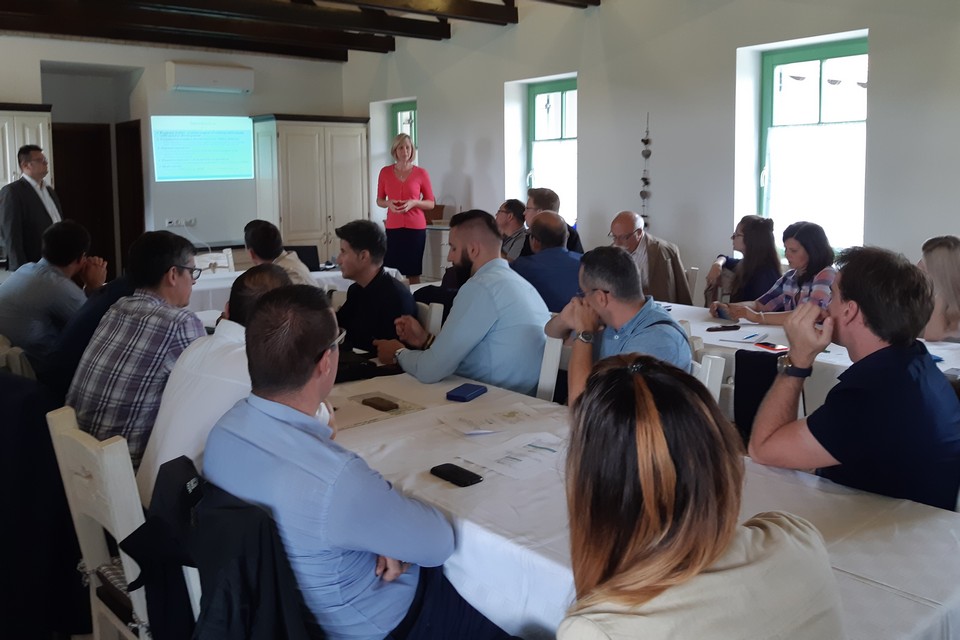The workshop was organized in a small village of Baranya county, in a pretty guesthouse. The energy needs of this house is from fully renewable energy sources, mainly form solar cells. The mayor is also interested in small-scale solar powers in the county.
The workshop was organized in a small village of Baranya county, in a pretty guesthouse. The energy needs of this house is from fully renewable energy sources, mainly from solar cells. The mayor is also interested in small-scale solar powers in the county.
Danijel Topić, the RuRES project coordinator, presented the most important goals and tasks of the project.
The first professional lecture was held by Engelbert Beck and Zoltan Bíró. Mr. Beck talked about the opportunities and obstacles in community development related to renewable energies. He emphasized the lack of financial sources and local governments need favorable regulations and supported financing environment. It is evident that these developments may result in significant energy savings in settlement institutions. The problem is that considerable financial resources are required for investments and that the payback period is relatively slow. The situation is similar on the individuals’ side – there is higher interest, but investments are not realized.
Zoltán Bíró, director of ABW Solar Ltd., talked about the growing interest and demand from the population side – more and more household-sized solar power plants are installed. He presented six major industrial solar power plants his company has built in the county.
Sándor Zsolt Kovács, researcher at MTA RKI, presented the possibilities of modelling. The model is based on settlement data, measurement of renewable energy potential and investment data. The model has several difficulties but it is possible to focus the attention to big differences between a real potential and an actual use.
Bernadett Horváthné Kovács presented the empirical research of the University of Kaposvár. The questionnaire survey was conducted in eleven settlements of Somogy subregion and examined the relation of the population renewable energy developments.
In the afternoon, the participants visited a winery in the village where the energy from the cellar’s cold store was also extracted from solar panels.




